 Racial profiling happens in so many ways around us. Last year, a golf course owner called police on black women because they were playing too slowly. A mom called police because two Native American students made her "nervous." And a white student at Yale called police because a black student was napping in his own college dorm building!
Racial profiling happens in so many ways around us. Last year, a golf course owner called police on black women because they were playing too slowly. A mom called police because two Native American students made her "nervous." And a white student at Yale called police because a black student was napping in his own college dorm building!
Now, a Georgia doctor believes he was racially profiled by a bank employee who called the cops on him because she assumed he was trying to rob the place.
According to told local station WSB-TV, Dr. Anthony Onyegbula was waiting to open an account at the United Community Bank in Stockbridge, Ga., with his wife when he stepped outside to call her. But the bank teller locked him out of the building and called police.
Dr. Onyegbula treats cancer patients in Henry County, Georgia. As a matter of fact, he is a hematologist and is affiliated with multiple hospitals in the area, including Piedmont Henry Hospital and Southern Crescent Hospital for Specialty Care. He received his medical degree from Michigan State University College of Osteopathic Medicine and has been in practice for more than 20 years.
While he was on the phone with his wife an employee was on the phone with 911.
Here's an excerpt from the 911 call: "He went to the front door and he’s been on his phone, and, I, um, called from my...
... phone to tell the employees to lock the front door."
“I looked at the door and it said close at 4:30 and my time say about 2:15, 2:10. I’m like what happened?” Onyegbula said.
911 call: "He’s been on his phone out front. And we have no cars in the parking lot. He’s a walker. So, I feel like he’s up to no good."
Onyegbula said he and his wife left and went to another nearby bank and that's when they realized police had been called for him.
“Here come the same police, came inside the bank, now it's two of them, and they said they told the manager to clear the room, because they wanted to talk to us,” Onyegbula said.
The officers left without filing any charges.
“So you think it was racial profiling?” Johnson asked Onyegbula.
“Yes,” Onyegbula said.
But the doctor said the anger, embarrassment and confusion he still feels won't be going anywhere for a while.
“I think they need training on how to deal with people. You cannot judge someone from the outside,” Onyegbula said.
The regional president for United Community Bank sent Johnson a statement, that reads:
“For privacy reasons, we do not comment publicly about the details of any customer or potential customer transactions. However, providing excellent customer service is our top priority and we are disappointed that we didn’t deliver that to Drs. Onyegbula and Tedga in this case. This afternoon we were able to speak directly with Drs. Onyegbula and Tedga to personally apologize for the misunderstanding. We are glad for the opportunity to connect and improve, and hope to have an opportunity to earn their business in the future."
Minority groups who endure everyday discrimination often suffer high rates of chronic diseases. And Black, Latino and Asian customers get charged higher car interest rates than whites -- even if they have similar credit histories!
Then there's the impact on business. One study found that white job interviewers sat farther away from black applicants than from white applicants and ended the interviews 25% sooner.
Another study showed that résumés sent out with stereotypically white names, such as Emily and Greg, received 50% more callbacks than résumés with stereotypically black names, such as Lakisha and Jamal -- even if they had similar qualifications. That study also found that "a white name yields as many more callbacks as an additional eight years of experience."
But here's another story where a doctor changes the stereotype of Black male doctors:
From the NFL to Neurosurgeon
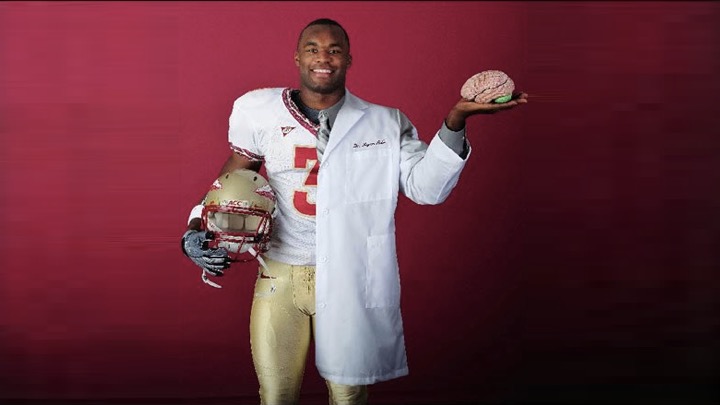
**UPDATE: The football player turned soon-to-be doctor Myron Rolle is even closer to his goal of becoming a neurosurgeon after the news he got. Rolle started his doctor residency at Harvard!
When he completed his fourth and LAST year of medical school he is too happy to be done with this stage of his life that he posted this video to his instagram with this caption: "Is it cool if I act silly and sing terribly...since it's the last day of medical school?? End of 4 yrs, Ive got to vibe a bit lol #Soca #GBM #Scene"
Even though those four years are down, he still has seven more to go, but he's looking forward to it.
"Seven years of neurosurgery is a big deal, something I wanted for a long time, really excited about it. Today is just great, it's remarkable," Rolle told WCTV in Tallahassee on Friday March 17th. "... Saving lives and helping people live a better life, that's going to make life worth living."
Rolle had always spoke of his goal to become a doctor following his football career. He famously took a chartered flight in 2008 from Birmingham, Alabama to... College Park, Maryland, to participate in his Rhodes scholarship interview and then play in the Florida State-Maryland game.
Rolle's residency begins July 1. But his journey to get here started long before he hit the big leagues.
“I played football, but I didn’t want to be categorized as just a jock.” Those are the words of Myron Rolle. Coming out of high school, Myron was the #1 football prospect in the entire U.S. He was a First Team Freshman All-American in 2006 and earned both Third Team All-America and Second Team All-ACC honors in 2008, his final season in Tallahassee. NFL scouts definitely took notice. Myron Rolle was rated by ESPN as the #1 football recruit in the U.S. in 2006, so it's no wonder he went on to play in the NFL.
During his time in the NFL, he wasn't your usual player. He researched stem cells. He started anti-obesity programs that the U.S. Department of Interior adopted. He even raised money for hospitals.
But just before his NFL dreams came true by enlisting in the draft, as scouts were eager to snatch him up, Rolle decided to delay his entering the NFL draft for a whole year to study medicine in Oxford, England. During that time, he was named a finalist for a Rhodes scholarship, the most prestigious academic award given.
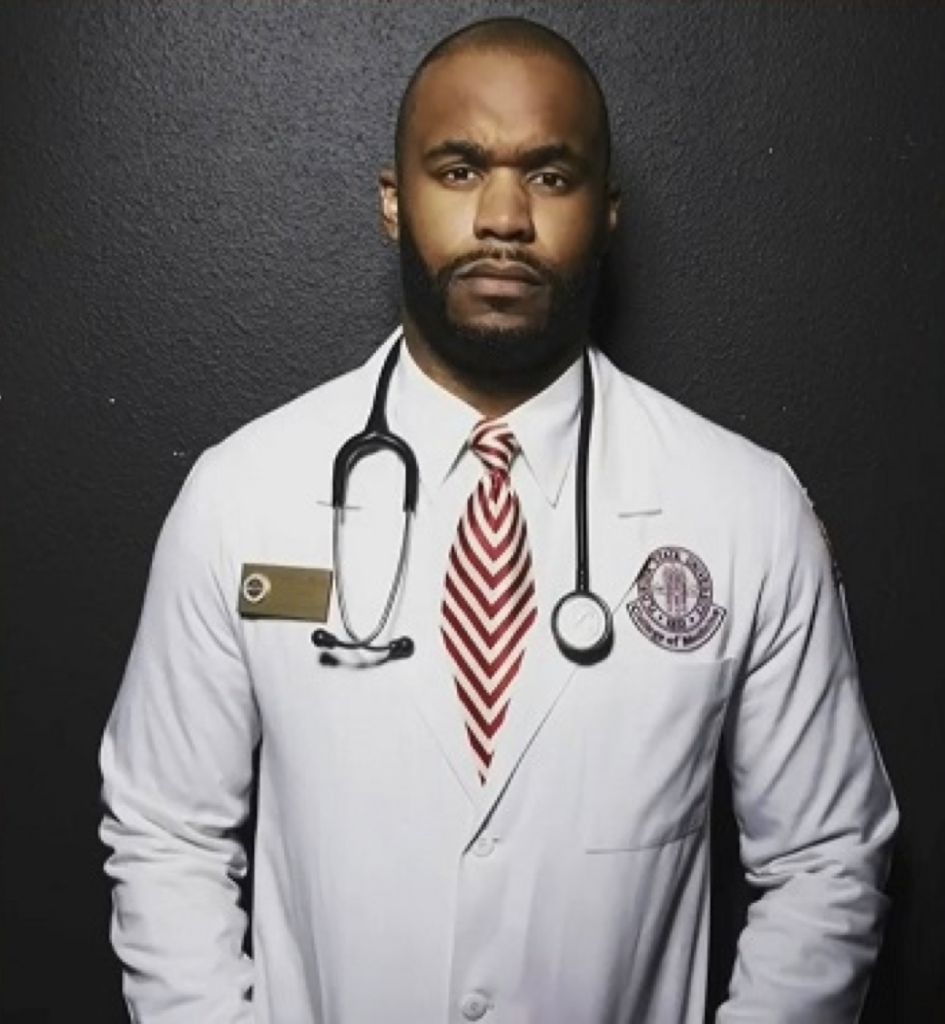
When he made it back to the States, the Tennessee Titans took on Rolle, selecting him in the sixth round of the 2010 draft. The progress he made in his first year with Tennessee — “I thought I was making strides and getting better with each snap, picking up things I didn’t pick up before,” he said — took a hit with the departure of head coach Jeff Fisher and the 2011 lockout putting a halt to OTAs.
Rolle was released right before the start of the 2011 season. The Steelers signed him to a reserve/future contract the next offseason, only to release Rolle at the tail end of the 2012 preseason. Afterward, it took Rolle three weeks of soul searching to realize that it was for the best that his football-playing career was done at age 25.
“I talked to my family, brothers and pastors asking them what they thought,” he said. “I still received interest from a few teams, and it didn’t have to be over. Then I said to myself, ‘I can knock my head against the wall for 8-9 years or move on to medicine.’ I was leaving the game with no concussions and dexterity in both my hands, where I could be a neurosurgeon one day."
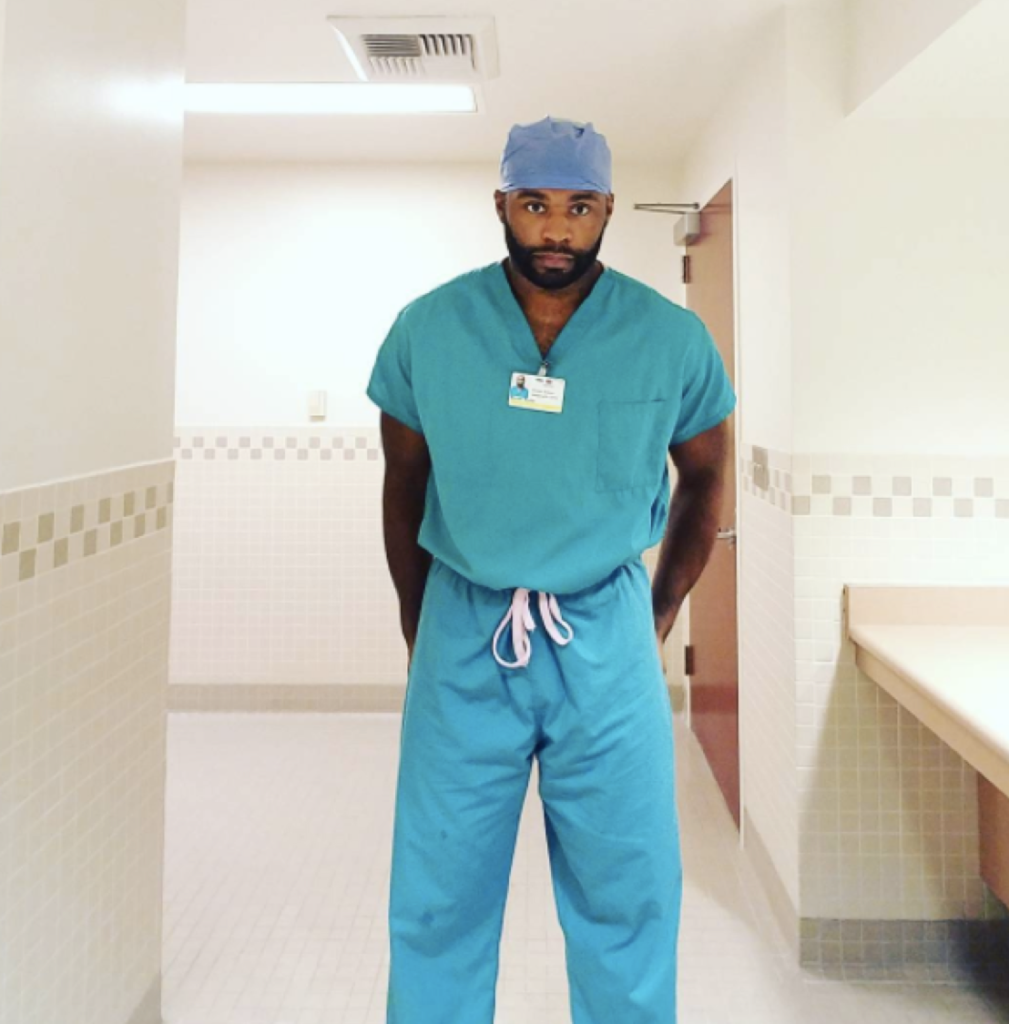
“The NFL experience was amazing. I had a chance to play alongside some of the best athletes in the world. Only two other people can say that they were a Rhodes Scholar and an NFL player (Pat Haden and Byron White). I look back and say, ‘I got to the league, I got drafted.’”
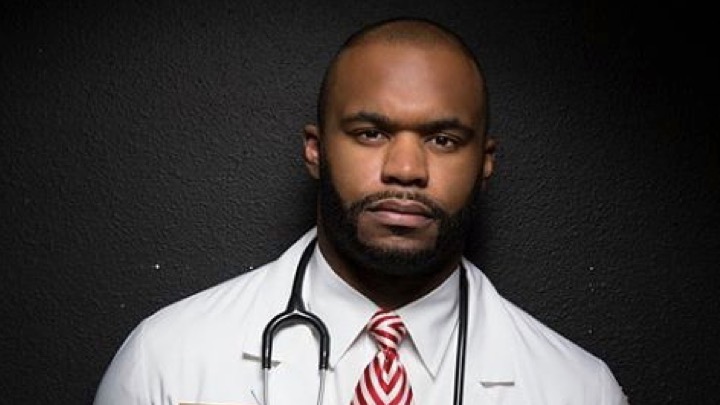
So now, after much study and hard work, the 30-year-old Rolle will be graduating this Spring 2017 with his med school degree from Florida State University College of Medicine!
Rolle is now also the chairman of the Myron L. Rolle Foundation, which serves the underserved in areas of health, wellness and education in the U.S. and around the world. The Myron L. Rolle Foundation currently hosts the Myron Rolle Wellness and Leadership Academy for Florida foster children, "Rhodes to Success" (an academic workshop for at-risk teenagers) and "Our Way to Health" (an anti-obesity program for American Indians of the Seminole Tribe of Florida, Navajo, Hopi and Pueblo tribes).
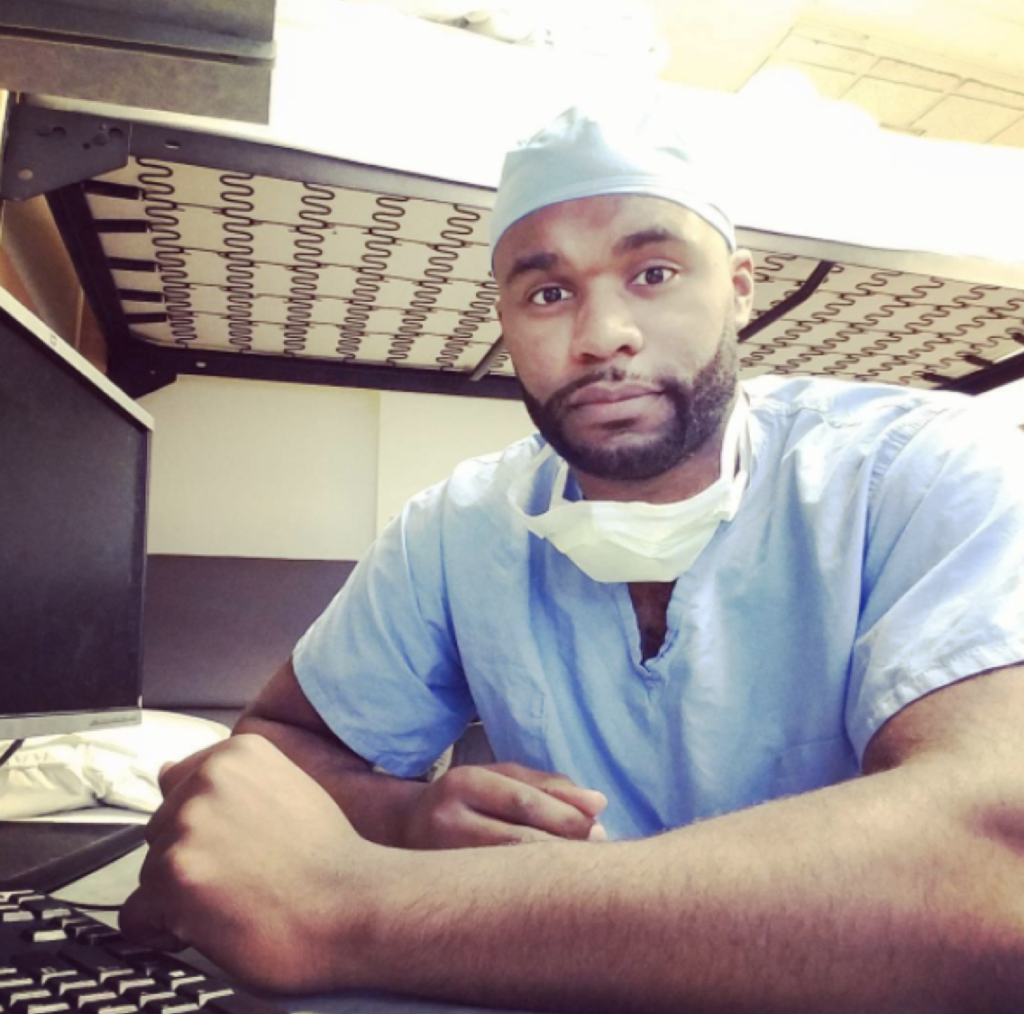
"It's always, 'What's next?,'" explains Myron. "I think people align themselves with my way of thinking when they're talking to me. They try to create new avenues for me to pursue, so if you want to be a doctor and you have interest in human rights and philanthropy and social equality of medicine and disease, why don't you think about being surgeon general? Then you could have a political impact, with a stronger influence and a bigger platform. I'm that person. 'What's next? What's next?'"
Whatever he has planned up his sleeve, we know it will be great. So let's just "Rolle with it."
See what I did there? 😉








